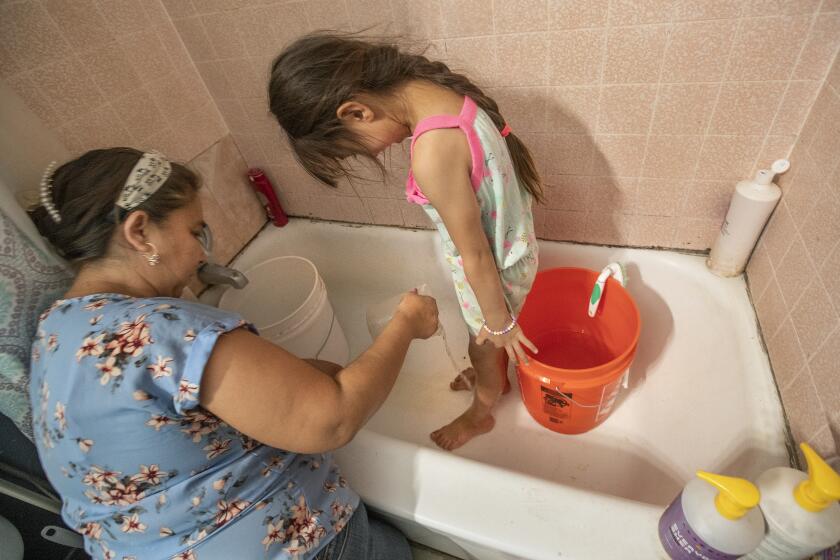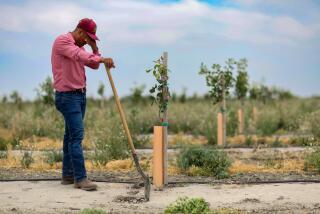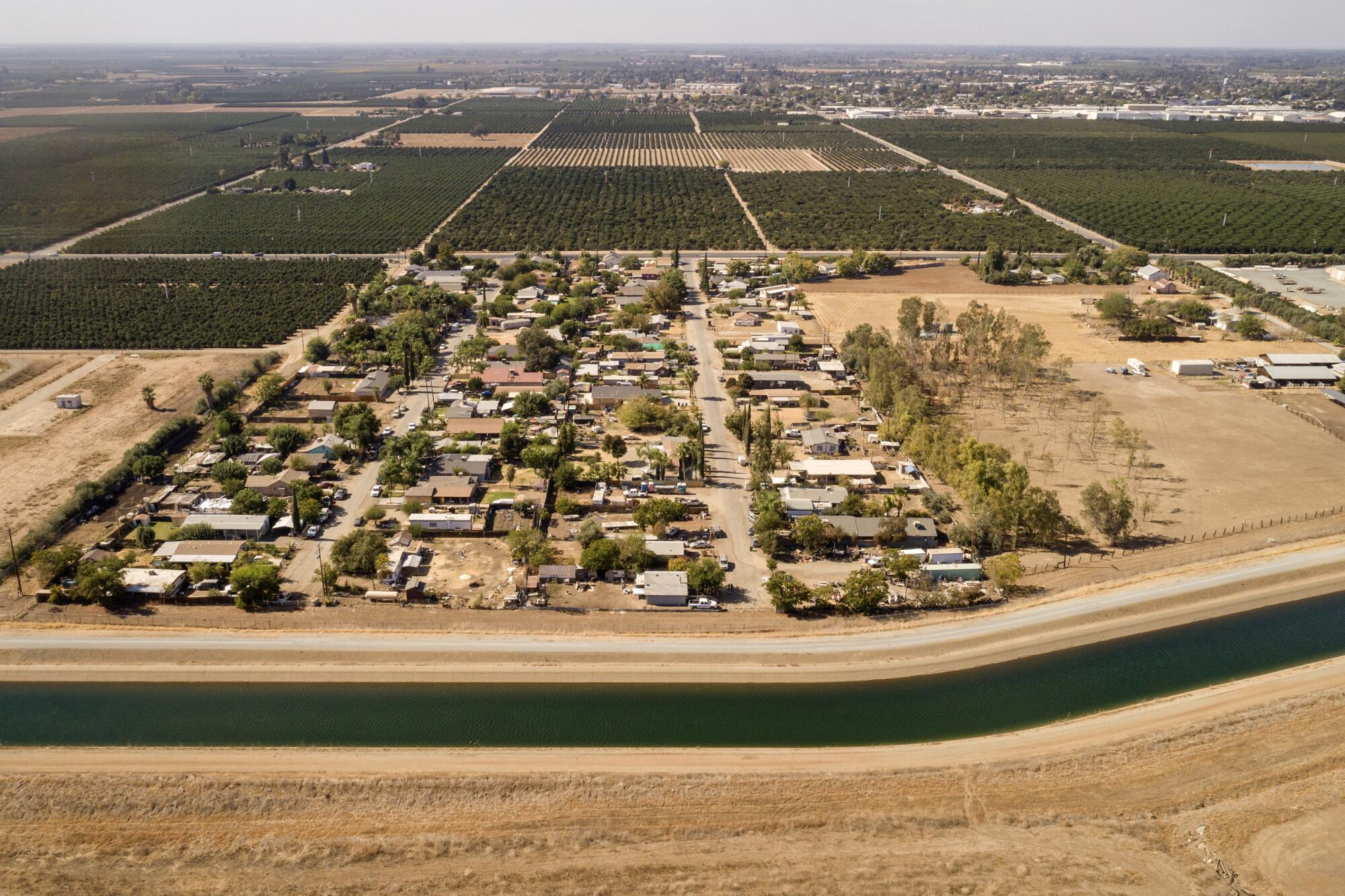
TOOLEVILLE, Calif. â At one of the last houses on a gravel road that dead-ends at a locked canal, Monica Santillan used a plastic milk jug to water her canna lilies.
She carefully dripped the water that was both scarce and too contaminated to drink.
The mountain water in the 153-mile Friant-Kern Canal was owned by growers and cities down the line. Locally, the communityâs two shallow, tainted wells were faltering because of drought and the trend of growers digging deeper wells, lowering the water table.
The entirety of Tooleville, home first to Dust Bowl refugees (who spelled the name of the Tule River as Tooley) and then to succeeding waves of immigrant farmworkers, is two parallel roads with no cross streets. Santillan keeps an old pink jacket on her fence so people making U-turns wonât hit it.
Her neighbor, a man with tattoos on his face and neck, made the tight turn as street dogs scattered. He called out âPaz de Cristo, seĂąora.â She wished him the peace of Christ in return.
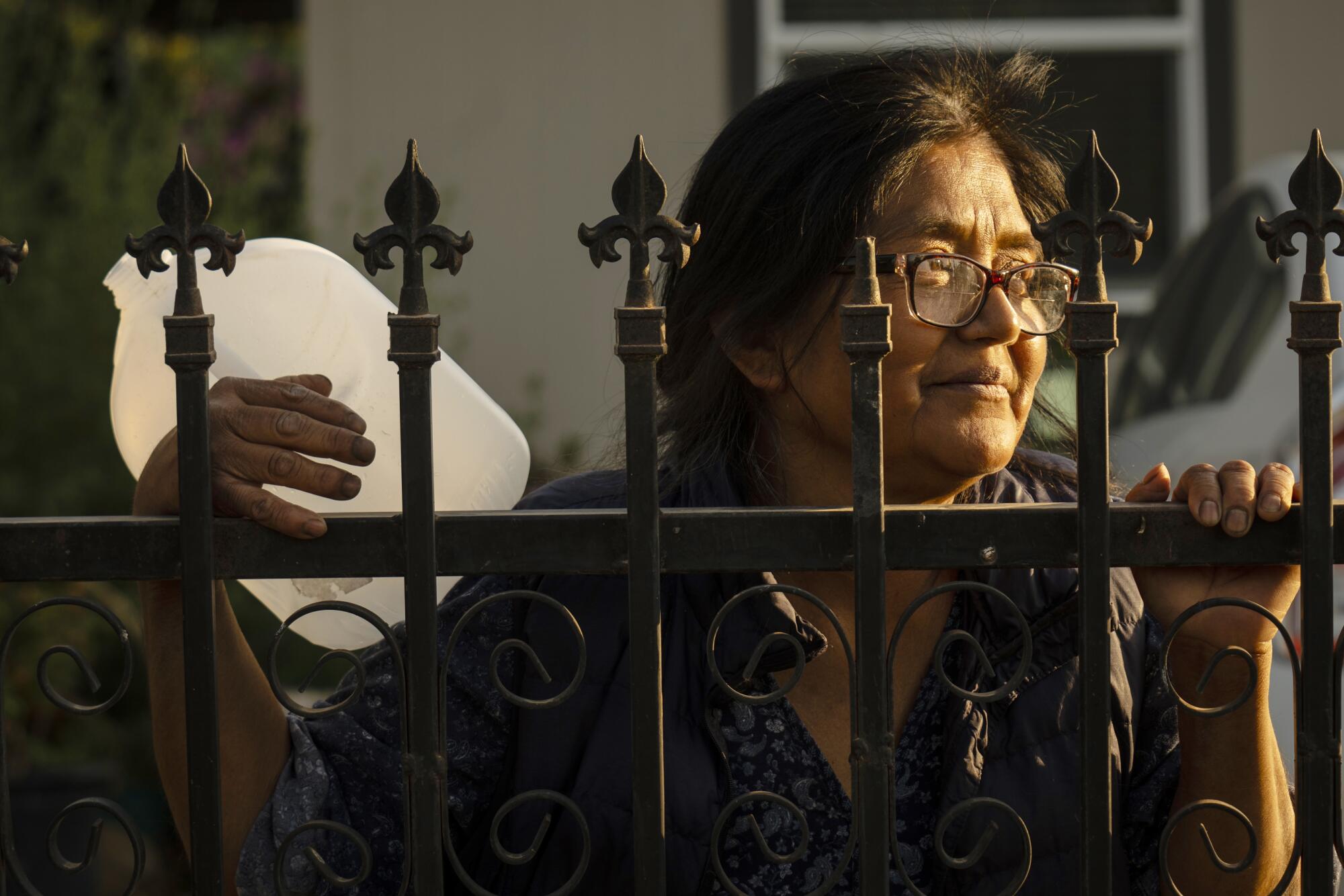
Santilla, recently returned from accompanying her fatherâs body to Oaxaca to be buried with the bones of his ancestors, gazed at the mountains. She said Tooleville is beautiful in the spring, when the foothills are the color of limes. But she wished she could move to town, where they can use water from the tap.
âTownâ is Exeter, less than a mile away. Itâs where many of Toolevilleâs 340 residents shop and go to school. Yet, for more than 20 years, the vibrant citrus-belt community has refused to connect Tooleville to its water system.
The engineering is simple: 0.7 miles of pipe. The human risk of not doing it is high. Tooleville water is contaminated with the carcinogen hexavalent chromium (chrom-6), and sometimes nitrates linked to agriculture and bacteria. Big plastic bottles of drinking water sit outside Tooleville homes. They are delivered every two weeks, paid for with emergency state funding passed during the California drought that ended in 2016. Residents pay $40 a month for running water they canât drink, cook with or even use for brushing their teeth.
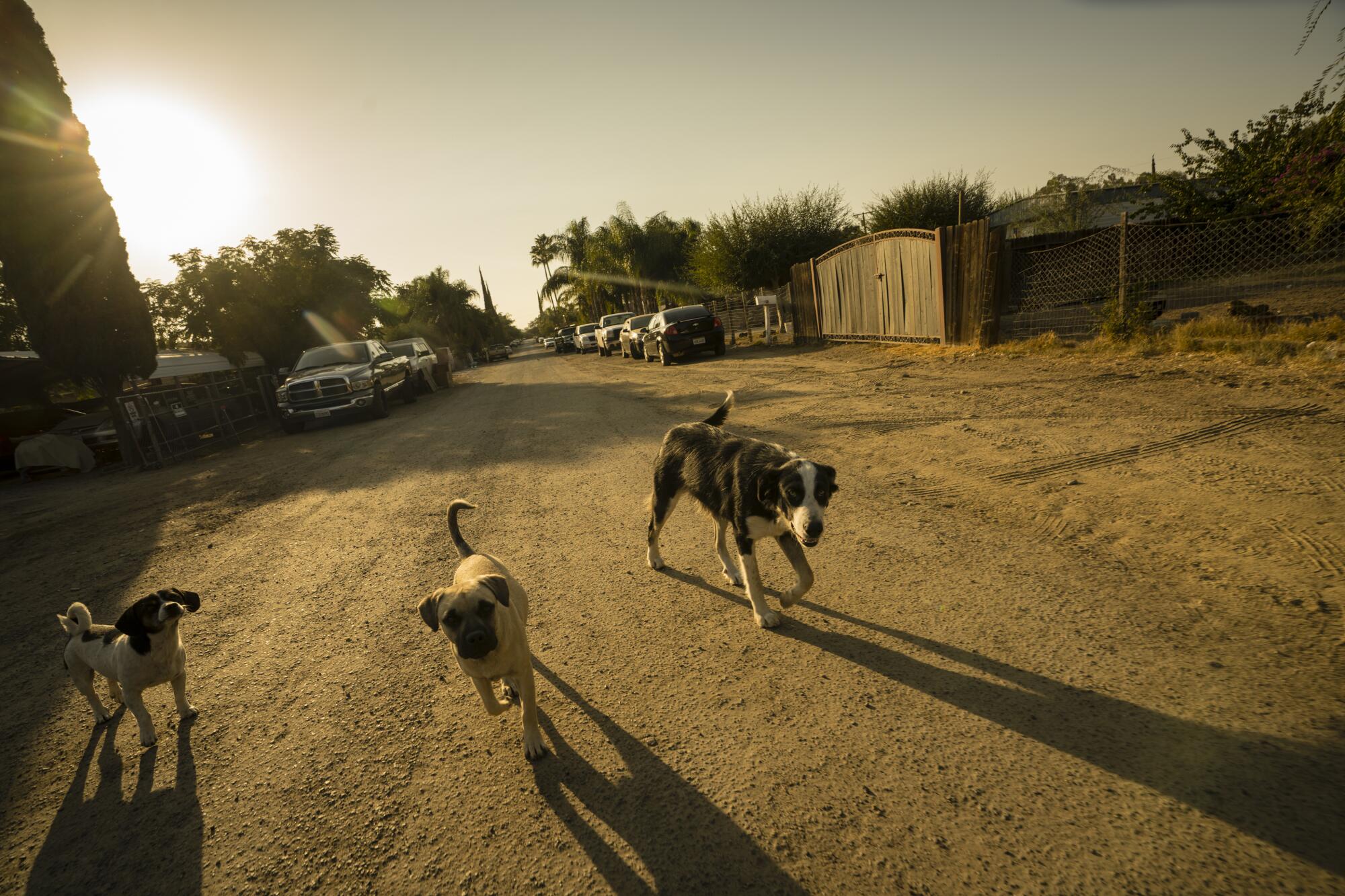
Among a slew of water bills signed in September was one inspired largely by Toolevilleâs struggle. Called the âproactive water solutions bill,â SB 403 gives the state the power to mandate and fund consolidation when there is an at-risk water system.
Exeterâs refusal to aid Tooleville may have given hope to the more than 1 million Californians who live in communities without clean, affordable drinking water, which by law in California is a basic human right. Most of the communities, like Tooleville, are in the agricultural Central Valley. Their residents are often Latino farmworkers and their families.
âItâs a huge change,â said Michael Claiborne, directing attorney for the advocacy nonprofit Leadership Counsel for Justice and Accountability. âBasically it means that small municipalities will no longer have the power to keep other Californians from having drinking water.â
Exeter is surrounded by orange groves. It has a cafe with outdoor tables and an enviable wine list, and a gift store where the Halloween display includes a sign that reads âLend a hand. Lift people up.â The town celebrates the source of its good fortune with murals of glowing groves and vintage orange crate labels.
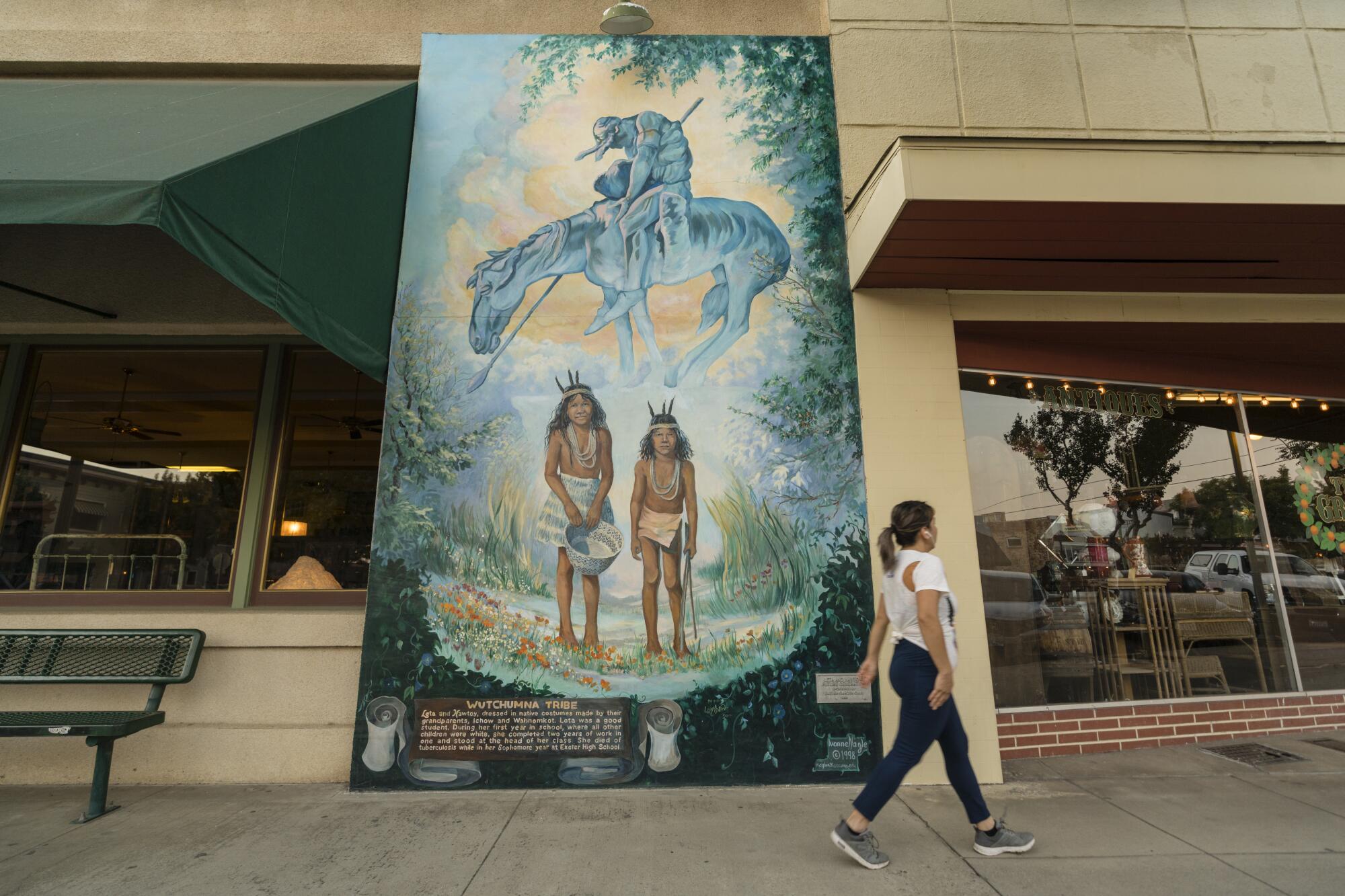
At the Frosty King (âBest Burgers in Townâ), Kate Collins, 15, sat with friends at an outdoor table.
She described Exeter as âsort of like a coastal town. Itâs different than the rest of the Central Valley. Itâs more green.â
She said she was feeling sentimental about the pretty community of some 10,500 because she may have to leave soon. Mask mandates are expected at the high school based on COVID-19 rates in Tulare County. Her father said they will move to Montana rather than comply. She thinks that more than half her class will move away.
âNot that people here would yell at people who wear masks. Itâs not like that,â she said. âPeople are really nice. Itâs just that itâs a very Republican place.â
In an unincorporated sliver of Madera County, the drought parched the natural landscape the Sevilla family once reveled in.
In 2019, when the Exeter City Council voted on extending drinking water to people in Tooleville, several Exeter residents went to the microphone to say it was the neighborly thing to do. More argued it would strain city staff, that the stateâs promises of funding couldnât be trusted, that their city had problems of their own to fix, and that Tooleville residents had become demanding under the tutelage of activists who helped them organize. The council unanimously voted down consolidation.
This July, as the most recent drought deepened and the heat rose, one of Toolevilleâs wells ran completely dry for a day and remains sputtering. The main well is expected to hit sand within months.
Without water pressure, people climbed on their roofs and poured water into swamp coolers. Others couldnât risk running out of drinking water and sweltered, trying to keep their children still in darkened rooms.
On Aug. 23, the State Water Resources Control Board sent a letter to Exeter officials warning that if they did not have a voluntary plan for consolidation within six months, the state would step in.
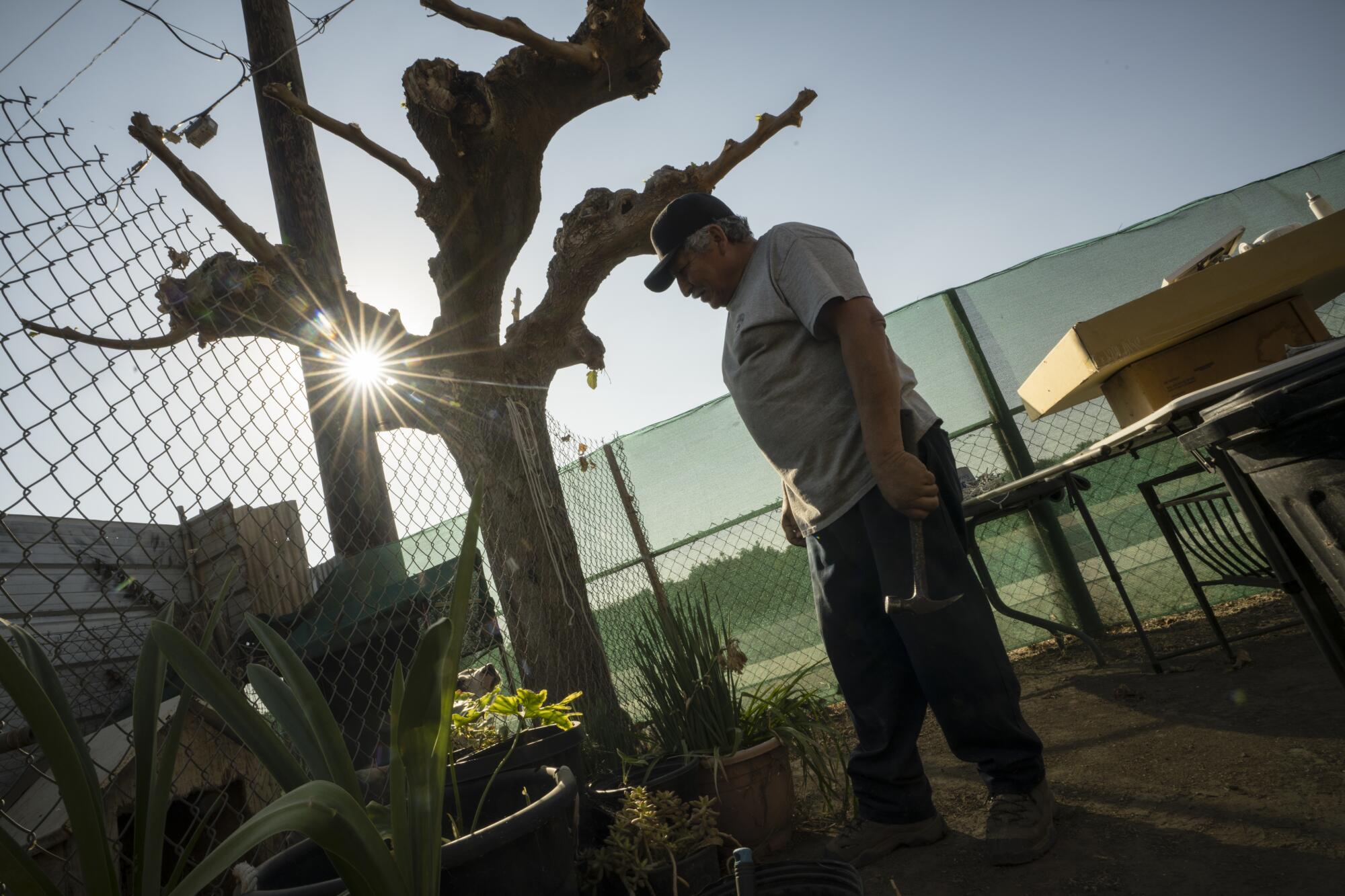

One recent day, Benjamin Cuevas, who lives on the other road in Tooleville, was trying to paint his house. It was slow going because neighbors kept dropping by to ask him to fix things such as a car window that wouldnât roll up.
He knew about the mandate. His sister, who lives next door, is on Toolevilleâs water advisory board. He used to go to Sacramento on trips to lobby for his community.
âItâs a waste of time,â he said with an eye roll. âItâs always just talk. Exeter doesnât want to help us.â
His multigenerational home, where his teenage grandson Reuben Cuevas spends most of his time inside learning to use a 3-D printer, is farthest from the canal, next to a main thoroughfare with trucks and cars flying by.
âGood luck getting out of here in the mornings,â he said with a shrug.
Empty plastic water bottles sat next to the front door. Across the street were citrus groves where crews had kept picking even when the smoke was so thick from a fire in Sequoia National Park that his family had locked themselves inside with towels beneath the door. His wife said she wanted to move farther into the country and get their own well.
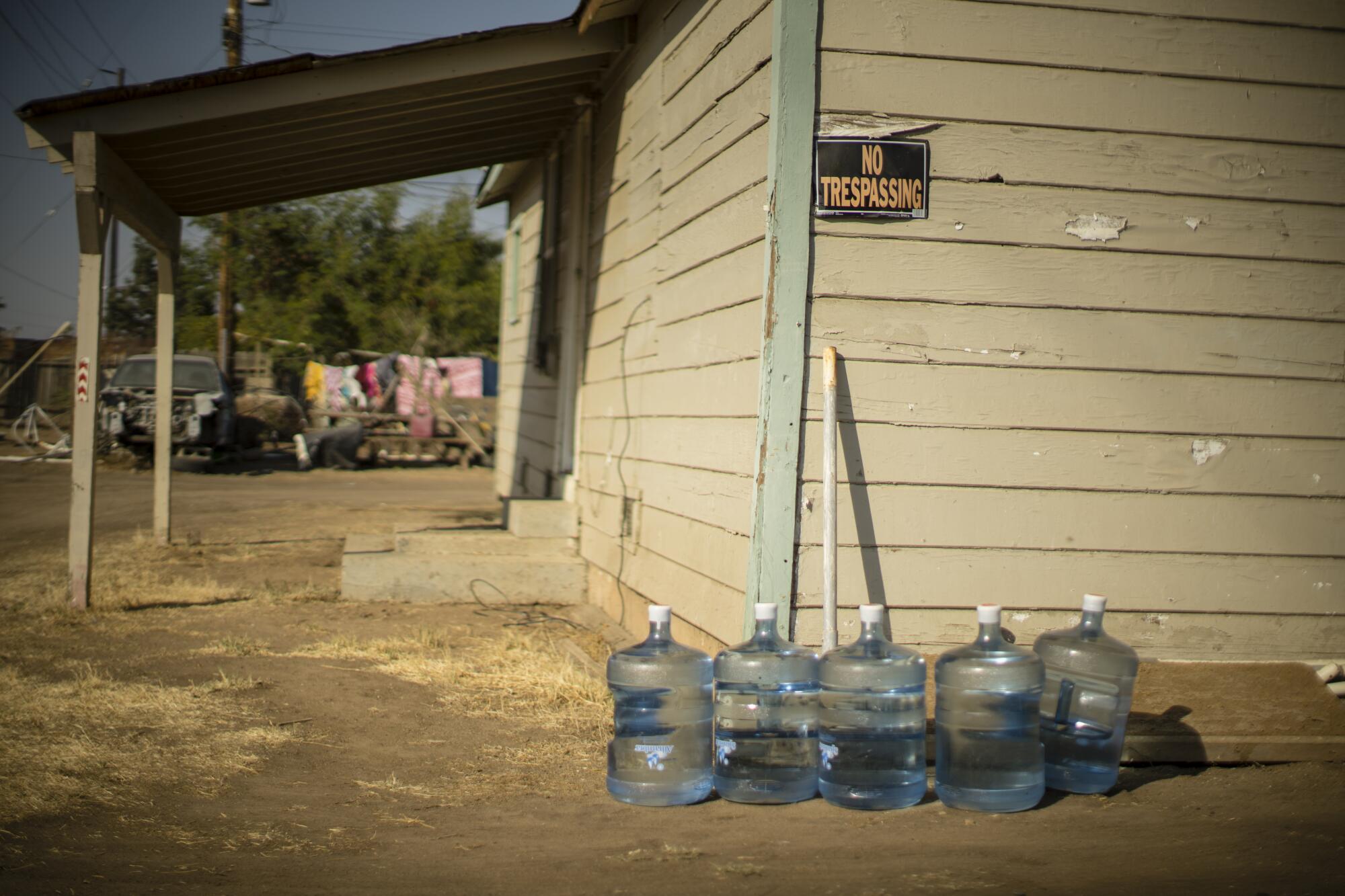
He told her they wouldnât find a buyer for their house without drinking water and that a country well would soon run dry like all of the others hitting dirt in the Central Valley.
So he is painting the house where they will be staying. He reminded her how she loves the green foothills in the springtime.

